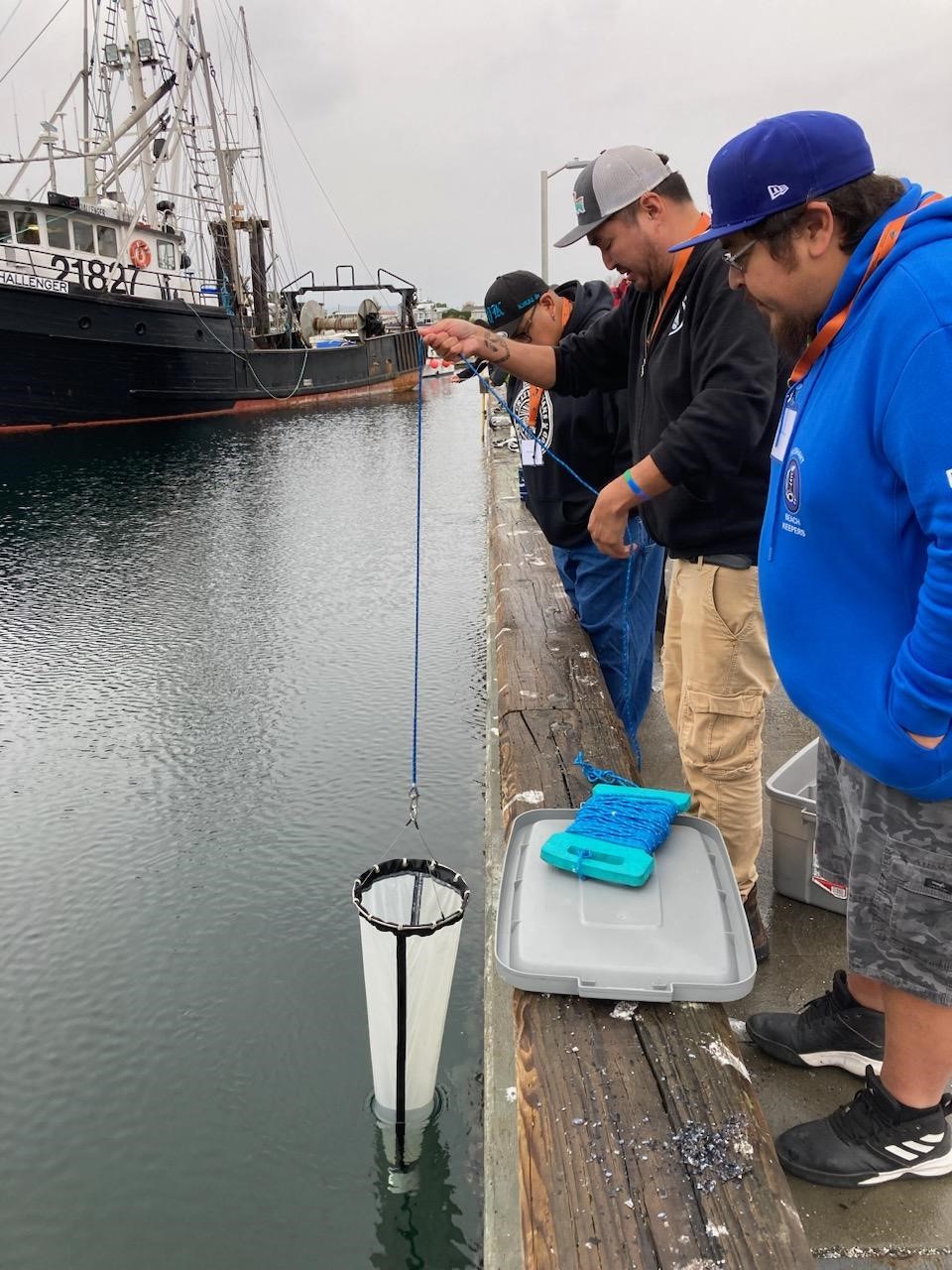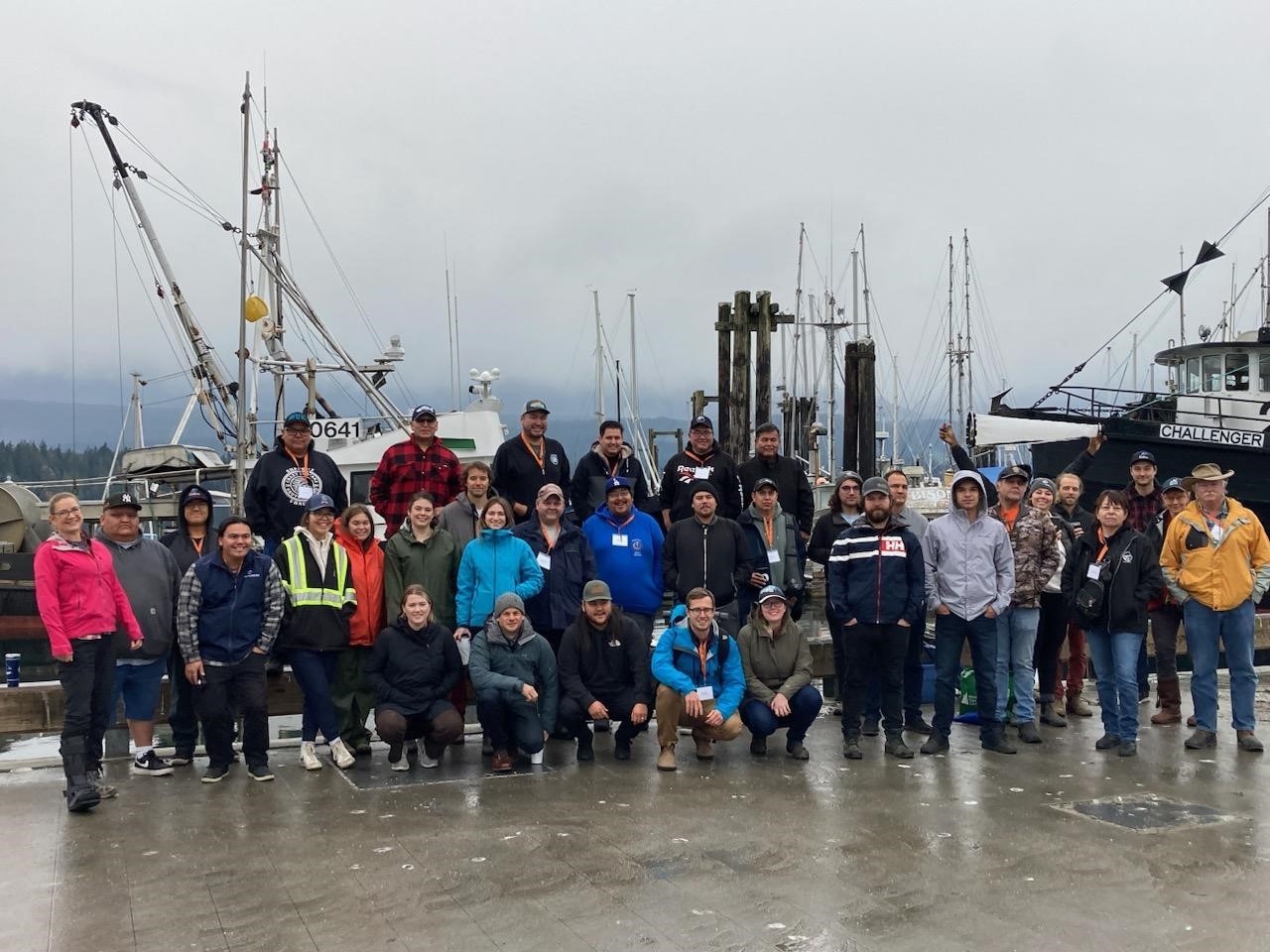
NCCOS scientists hosted a phytoplankton and toxin monitoring workshop for Tribal environmental specialists from the First Nations Health Authority, part of the WATCH Community of Practice, to share techniques focused on seafood safety, security, and sovereignty in the Salish Sea. The tribes include peoples from the American Pacific Northwest and British Columbia who live along the Salish Sea and use its resources for food and other needs. NCCOS and tribal members co-developed a citizen science partnership, tailored to the tribes’ specific needs, to protect subsistence-harvested shellfish from harmful algal blooms (HABs) and their toxins.
HABs have impacted the Salish Sea for decades, and occur when hazardous phytoplankton grow and accumulate in an area. Associated biotoxins can be taken up by shellfish and fish, resulting in foodborne illness, such as paralytic shellfish poisoning, in people and animals that eat the contaminated seafood. Not all HABs produce toxins, so communities focus on monitoring for toxins in the water to determine when seafood is safe to harvest. WATCH is developing a community-based monitoring program and early warning system to inform harvesters and health care workers about risks and to help prevent the consumption of contaminated seafood.
NCCOS hosted the workshop to share methods of phytoplankton monitoring coupled with toxin detection to protect tribal subsistence-harvested shellfish. The Phytoplankton Monitoring Network’s phytoplankton sampling and identification techniques were presented to the workshop participants as well. The transfer of techniques and resources during these workshop presentations will help support the WATCH program’s goal of having four operational toxin testing laboratories in the Salish Sea area.
The WATCH Program is supported by the Health Canada HealthAdapt program, Public Health Agency of Canada Infectious Disease and Climate Change Fund, Indigenous Services Canada Climate Health Action Program, and FNHA’s Indigenous Climate Health Action Program (ICHAP). Other examples for implementing tribal, co-developed programs include the Southeast Alaska Tribal Ocean Research, Chugach Regional Resources Commission, and Norton Sound Health Corporation projects.

